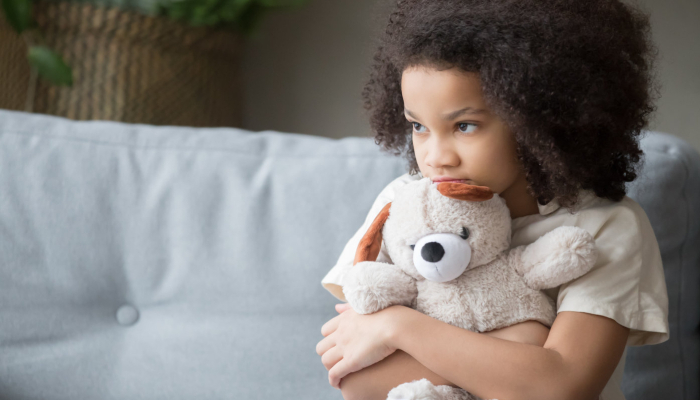By Guest Blogger HRI Program Coordinator, Camila Dos Santos, M.Ed.
The Healthy Relationships Initiative promotes happy, healthy, and safe relationships of all kinds and provides resources for marriages in distress, including our Toolkit for Couples and E-Book on Keeping the Love Alive.
However, when parents find that the healthiest way to move forward is divorce, it’s important that they work together to support young children through the changes and stressors that each stage of divorce brings:
Before the Divorce: Telling the kids
Even though divorce signifies the end of your partner relationship, it certainly does not mean the end of your relationship as parents. In fact, divorced couples must arguably communicate more often and more intentionally about their children to prevent conflict and misunderstandings.
Deciding how to handle situations together, such as how you’ll answer anticipated questions and how you’ll communicate with the kids about difficult issues in the future is important before you tell the child(ren) about the divorce.
The more parents use similar wording and present a united message, the easier it will be for child(ren) to adjust to their new situation. Couples who struggle to communicate during the divorce may benefit from the help of a counselor to ensure that they are communicating with young children in a healthy way and refraining from projecting adult emotions and uncertainties onto young children who are unable to process or understand them. Parents who struggle to find the words may benefit from this toolkit of divorce resources by Sesame Street in Communities.
While young children will still struggle with the changes that divorce brings, presenting a united front as parents can help make the process less traumatic for the entire family.
During the Divorce: Dealing with misbehavior
Going through a divorce is hard on the entire family and it’s not uncommon for young children to act out as a result. After all, expecting young children to understand the implications of divorce right away is unfair.
This is why many parents experience a period of calm after they announce a divorce to young children. However, over time, when children begin to see their routines and life change as a result of the divorce, or they begin to see the emotional consequences of divorce on their parents and family, they may cry out for help through misbehavior and other negative responses. This is when it’s perhaps most important to ensure you are having ongoing conversations with your child, where you focus on what they have to say and not what you would like to say.
If your child is misbehaving, you may be tempted to lose your patience, especially if you’re in the middle of a divorce! But during this time, patience is key, especially for young children, and making the time for open conversations with them is an important part of coping and healing after divorce.
If they struggle to open up, have the conversation while doing something else, such as playing with a toy or coloring. Ask them open-ended questions and give them time to respond. Validate their feelings by saying things like, “It sounds like you feel scared about how things will change, and I understand that feeling, too.” Allow children to tell you what they need by asking them, “How can I help you?” or, “How can I help make this better?” Even if both of you don’t have all of the answers, just having the conversation can be a helpful coping mechanism for children (and adults!)
When children misbehave, it’s often because they don’t have the tools to cope with difficult emotions, but parents undergoing through a divorce can proactively deal with misbehavior by providing a safe and open safe to communicate through negative emotions and showing young children that they are loved regardless of their behaviors.
After the divorce: Don’t assume the kids are “over it!”
Just because the divorce process is over for the adults doesn’t mean that the kids are over it, too. A crucial part of helping young children adjust to their new normal is to help them be a part of the changes, as much as it makes sense for their age.
While young children can’t make big life decisions such as where a parent will live, they can still share their thoughts about how often they’ll get to see them, or how they can contact them when they miss them. These conversations are meaningful and help them to adapt, even if their new normal is different from what they expected. It also helps you get a sense as to the areas in which they may be struggling and where you can provide additional support.
For example, if your child continuously expresses concerns over logistical issues, like who will pick them up from daycare, then you can help to minimize this stressor by going over their daily schedule with them and perhaps creating a visual one that is posted at both parents’ homes.
While parents don’t want to stress young children with too much information during a divorce, it’s important to give them chances to let us know how they feel about things along the way.
For more resources on divorce, check out the HRI toolkit on Divorcing With Dignity.
Want to see more blogs like this and get notifications on local events and happenings? Subscribe to Triad Moms on Main’s free weekly newsletters here.














